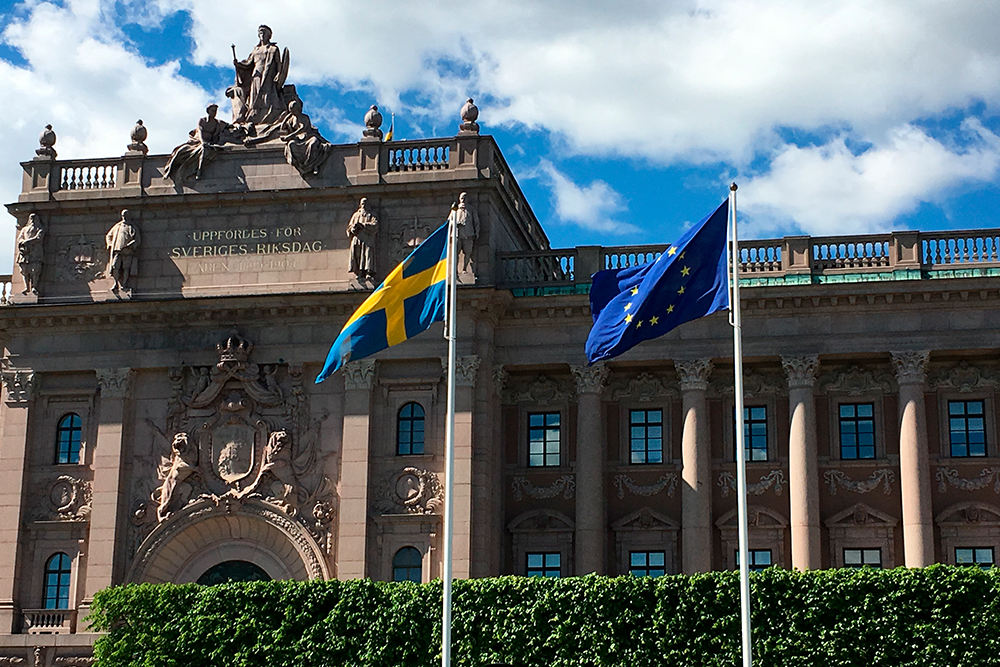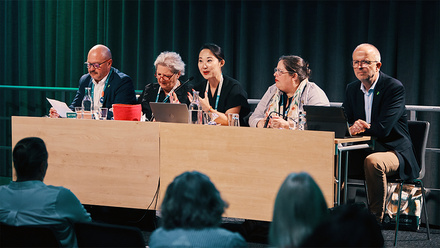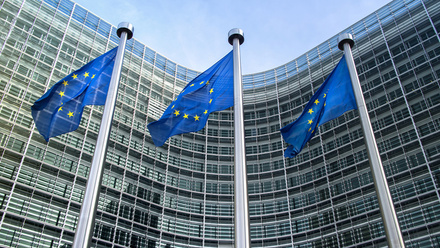Sweden’s new internationalisation strategy

Each year, Sweden attracts about 36,000 international students. Beginning in March 2017, the country’s government launched an Inquiry into increased internationalisation of higher education institutions as a means to address the perceived need to increase the country’s attractiveness as an international study destination.
Chaired by Dr Agneta Bladh, the inquiry delivered its first report to the Minister of Higher Education and Research, Helene Hellmark Knutsson, at the end of January this year. Building on research undertaken with higher education institutions in Sweden, this report presented a proposal for a new internationalisation strategy for the years 2020–2030 for the country.
The EAIE recently spoke with Dr Bladh to get a better sense of what the inquiry hopes to achieve for higher education in Sweden.
EAIE: You were appointed Chair of the Swedish Government’s inquiry on increased internationalisation of higher education institutions. What was the main aim of this review?
AB: In addition to a true internationalisation interest from our higher education minister, who believes Sweden has fallen behind, there has been pressure from the higher education sector and elsewhere to conduct a review of the internationalisation policy for Swedish institutions. Higher education institutions (HEIs) wanted to stress the importance of internationalisation as well as remove any obstacles for further internationalisation. To reflect the importance, the inquiry has proposed a new wording in the Higher Education Act that all international activities at each HEI should contribute to improving quality of education and research and, nationally and globally, to sustainable development that HEIs are meant to foster. How to deal with the obstacles will be further explored in the second report.
EAIE: What process did the inquiry follow?
AB: We sent a comprehensive survey to all higher education institutions in Sweden in order to gain insight into the internationalisation policies currently in place. We continue to maintain a dialogue with the institutions as well as other stakeholder organisations, including the Association of Swedish Higher Education, the Young Academy of Sweden and some research-funding organisations.
We hope to stress the importance of internationalisation as well as remove any obstacles for further internationalisation.
EAIE: The internationalisation strategy outlines eight objectives that must be attained. How can higher education institutions ensure that they fulfil these objectives?
AB: The first objective is ‘comprehensive internationalisation’. This means that internationalisation is an obligation for all management and employees, including international officers. Another objective calls for all students to receive an international or intercultural perspective in their education; this will be quite demanding for faculty and staff. The eighth objective is about evaluation and monitoring. A more thorough follow-up will be needed – both by the institutions themselves and by the Swedish Higher Education Authority, (UKÄ) – to ensure these objectives are met. In Sweden, as in many countries, there are currently few statistics covering all kinds of internationalisation efforts. UKÄ and the HEIs will need to find more suitable statistics to cover all kinds of international efforts both at student level and staff level. Another proposal is that the government should ensure that the strategy is evaluated midterm, as well as after ten years, in order to provide guidance when conditions for internationalisation change.
EAIE: What are the elements of a successful strategy?
AB: As internationalisation isn't a goal in itself, but rather a means to achieve other goals, it is important to consider the ‘why’ factor behind your strategy, taking into account your own country’s specific circumstances. In the report, we include four different goals Sweden has for promoting internationalisation:
- Academic: Preparing students for a career in a global work environment.
- Political: Higher education and research are increasingly important in bilateral relationships with other countries. National and global sustainable development can gain from internationalisation of HEIs. Additionally, HEIs can support the development assistance policy.
- Economic rationales: Internationalisation contributes to renewing the knowledge and innovation system through an inflow of new methods, perspectives and technologies.
- Cultural/social: International contact between students and researchers can foster the spread of knowledge and values from one country to another. Internationalisation also supports language skills and promotes healthy social skills for individuals.
Dr Bladh and her team’s report is still in the proposal stage with the Swedish Government. However, they are already hard at work on next steps to increase internationalisation in Sweden. A second report will be delivered to the Government on 31 October, and will propose measures to increase Sweden’s attractiveness as a study destination. It will include a review of the application and admission process for international students as well as tuition fees throughout Swedish HEIs.






